Animals
-
 Animals
AnimalsDelve into the history of the fight for Earth’s endangered creatures
The new book ‘Beloved Beasts’ chronicles past conservation efforts as a movement and a science, and explores how to keep striding forward.
-
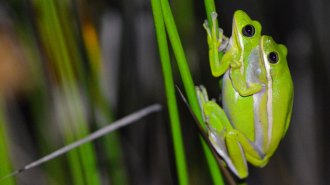 Animals
AnimalsFemale green tree frogs have noise-canceling lungs that help them hear mates
When inflated, female green tree frog lungs resonate in a way that reduces sensitivity to the sounds of other species.
-
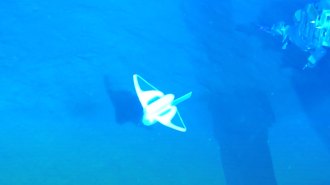 Materials Science
Materials ScienceThis soft robot withstands crushing pressures at the ocean’s greatest depths
An autonomous robot that mimics the adaptations of deep-sea snailfish to extreme conditions was successfully tested at the bottom of the ocean.
-
 Archaeology
ArchaeologyAn ancient dog fossil helps trace humans’ path into the Americas
Found in Alaska, the roughly 10,000-year-old bone bolsters the idea that early human settlers took a coastal rather than inland route.
-
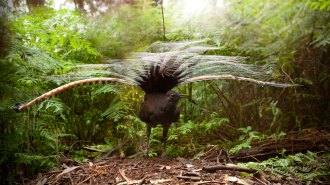 Animals
AnimalsA single male lyrebird can mimic the sound of an entire flock
The Australian birds, already famous for their impressive song-copying skills, appear to be replicating the sounds of a “mobbing flock” of birds.
By Jake Buehler -
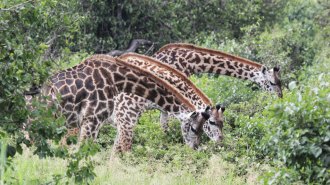 Animals
AnimalsHaving more friends may help female giraffes live longer
A more gregarious life, even while just munching shrubbery, might mean added support and less stress for female giraffes.
By Susan Milius -
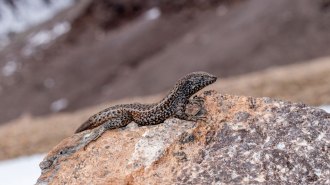 Animals
AnimalsA mountain lizard in Peru broke the reptilian altitude record
Liolaemus tacnae was photographed 5,400 meters above sea level in the Andes, breaking the highest elevation record for a reptile by about 100 meters.
By Jake Buehler -
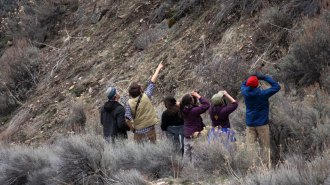 Animals
AnimalsA rare bird sighting doesn’t lead to seeing more kinds of rare birds
The idea that more kinds of rare birds are seen when birders flock to where one has been seen, the so-called Patagonia Picnic Table Effect, is a myth.
-
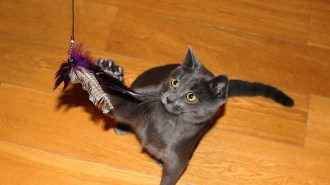 Life
LifeMeatier meals and more playtime might reduce cats’ toll on wildlife
Outdoor cats kill billions of birds and mammals each year. Simply satisfying their need to hunt or supplementing their diets could lessen that impact.
-
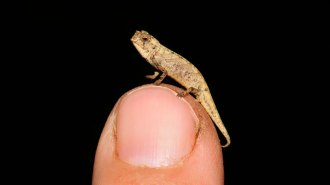 Animals
AnimalsA new chameleon species may be the world’s tiniest reptile
The newly described critters, found in the northern forests of Madagascar, may be threatened by deforestation.
-
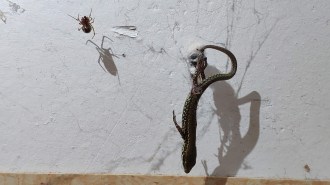 Animals
AnimalsHow a tiny spider uses silk to lift prey 50 times its own weight
Dropping the right silk can haul mice, lizards and other giants up off the ground.
By Susan Milius -
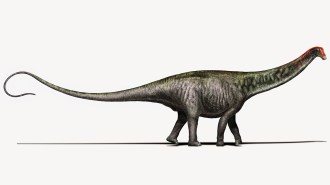 Animals
Animals50 years ago, scientists made the case for a landlubbing Brontosaurus
In 1971, a scientist argued for a landbound Brontosaurus instead of a swampy swimmer. Recent evidence comes from studies of its ancient environment.